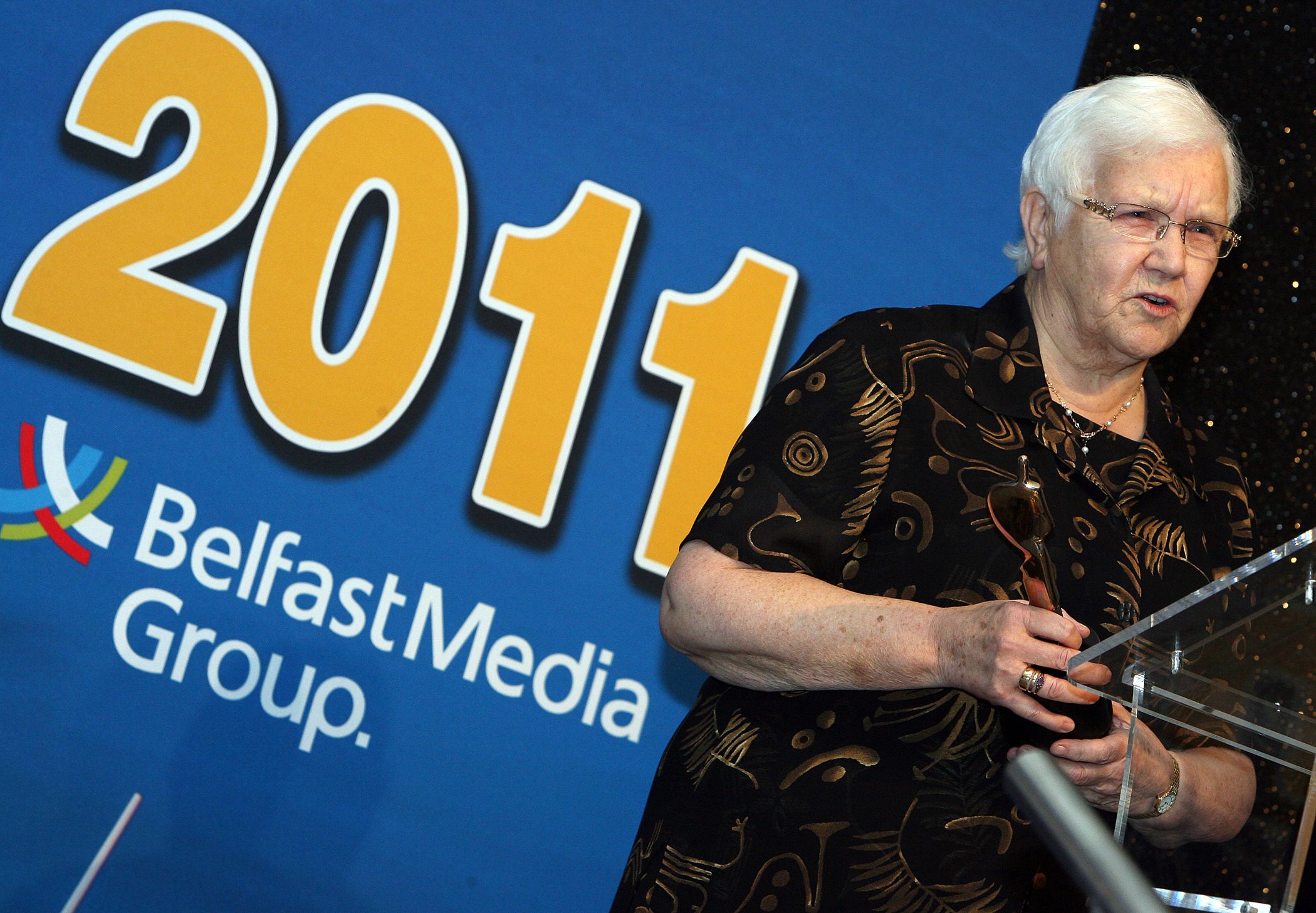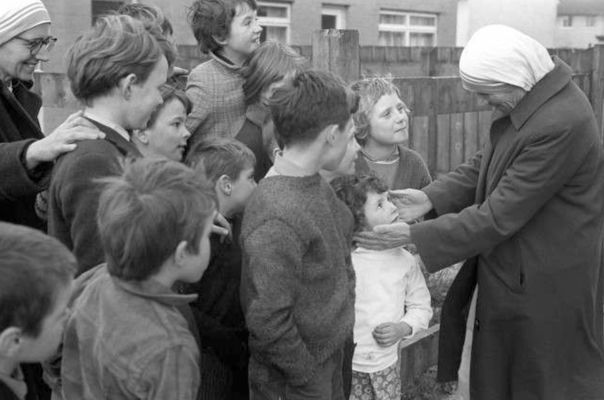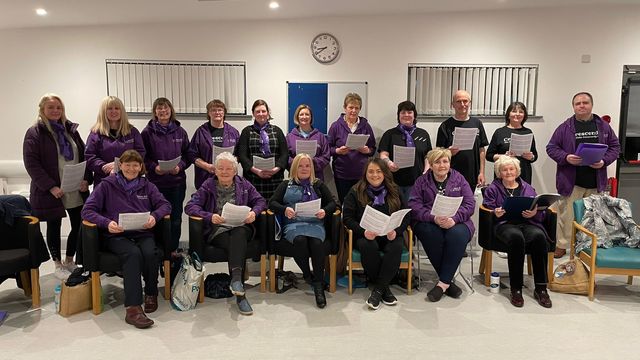TRADE unionist and founding member of the Women's Coalition, Baroness May Blood has died at the age of 84.
Having grown up on Magnetic Street, off the Grosvenor Road, Baroness Blood left school at the age of 14 and went to work at Blackstaff linen mill. Soon after, she joined the Transport and General Worker's Union and went on to deal with health and safety issues, such as long working hours, as well as wages.
She remained at the mill until it closed in 1989 when she went on to become a community worker in the Greater Shankill, helping to set up a number of community centres in the area.
In 1999, May Blood became the first woman from the North to be given a life peerage and retired from the House of Lords in 2018.
She served as Chair of Bernardo's Northern Ireland between 2000 and 2009.
In 2011, May Blood was awarded the Roll of Honour Award by Belfast Media Group at the Aisling Awards for her tireless community work.
Baroness Blood was also an advocate for integrated education, having helped raise of £15m for the Integrated Education Fund.
In a statement, the Integrated Education Fund said: The Integrated Education Fund (IEF) is deeply saddened by the passing of their great friend and champion Baroness May Blood.
"May, as she wanted everyone to call her, devoted so much of her life to helping others in our society, particularly children and young people, her local community in the Greater Shankill and anyone she felt to be disadvantaged or in need.
"May yearned to see Northern Ireland at peace with itself. It was that desire for peace that drove her to do exceptional things for so many people. She was such an inspiration to all who knew her.
May Blood gave me something to aspire to. She’s a lesson in cross-community Labour politics, fighting for women’s place in the world on equal terms and speaking truth to power. Northern Ireland wouldn’t be where it is without her 🌹 pic.twitter.com/nhYifRuF7b
— Lauren Kerr (@_laurenakerr) October 21, 2022
"She grew up in a working class community in Belfast. As she often said, her family might have been poor but she didn’t know they were poor because there was no social worker at the time to tell them. May realised that people, particularly women, were facing the same challenges no matter what side of the peace wall you happened to live on.
"May left school at a young age to work in the Blackstaff Linen Mill in West Belfast. Her time there exposed her to horrendous working conditions, something she would later go on to fight against through her involvement in the Trade Union movement.
"Equally she loved her time in the Mill where she enjoyed the friendship of all the workers. As May often reflected - in the Mill everyone was just the same, it didn’t matter what religion you were or were you came from, everyone shared a common enemy – the boss!"
The fund said that May's Christian faith was very important to her and these values she held dear throughout her life.
"Renowned for her straight-talking, no-nonsense approach, May could strike fear into those who got on her wrong side of her but she was also one of the most kindest, generous and compassionate individuals you could ever meet," they continued.
"People could relate to her honest and humble approach. May could get on with everyone. It made no difference to her if you were a Peer in the House of Lords or someone who worked on the factory floor. She valued you as an individual.
"Having left school so young, May regretted not having the formal education that so many others had. However, she cherished the education the Trade Union gave her. She always said 'Education is your passport for life' and so it came as no surprise that she would devote so much of her life to advancing Early Years education in the Shankill.
"One of her greatest achievements was to help bring the Sure Start programme to the Shankill and then to watch it roll out across Northern Ireland.
"Her interest in integrated education came later. At first May felt integrated schools must be for the middle classes, not for the likes of her.
"Her eyes were opened however during a visit to Hazelwood Integrated College on the North Belfast peace line. There she met children from the Shankill, Tigers Bay and the New Lodge – all being educated together and wearing the same uniform with pride.
"When the Integrated Education Fund (IEF) first approached May to be a volunteer fundraiser for six months in 2001, she willingly accepted. Little did she know then that her support would continue for a further 22 years as our Campaign Chair. Using her title to open doors and host events, May was our inspirational leader for over two decades helping to raise millions for the cause."








